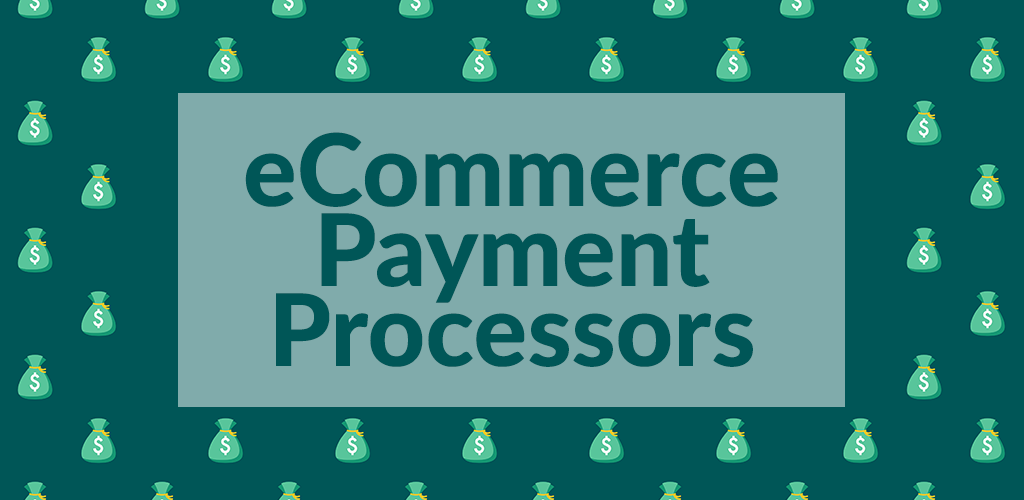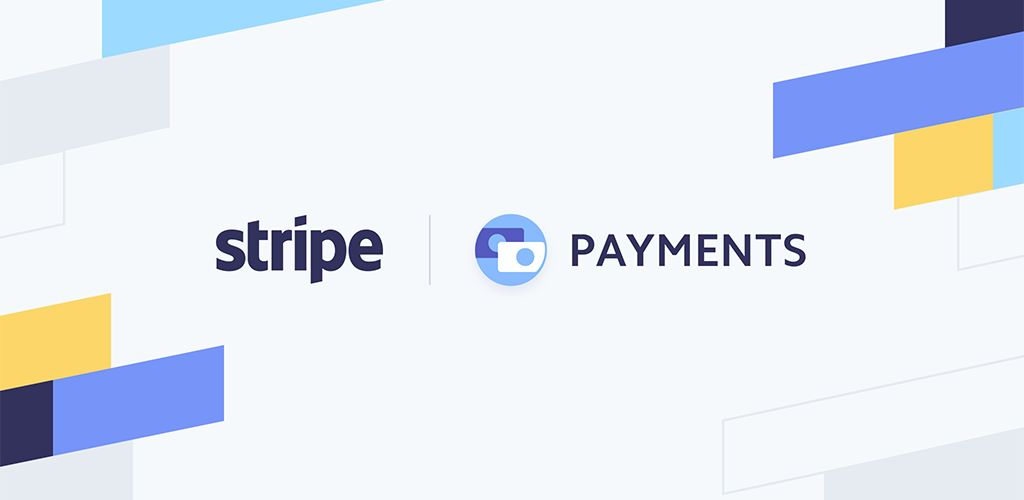The Pros and Cons of the Most Popular eCommerce Payment Processors

Thanks to the power of technology, buying items online has never been easier. In less than five minutes, a consumer can choose a product, add it to their cart, and pay for it. Then presto, it arrives at their door a few days later. The simpler you can make this process for your online store, the more likely you are to create a dedicated audience and increase your sales. That’s why the payment gateway you choose for your business is absolutely crucial. Too complicated and you dissuade customers, not secure enough and you risk losing the trust of your audience. Likewise, offering too few options or ones that are too niche can also hurt your business. When it comes to choosing the right processor for you, you should invest some time to research all options thoroughly. Our guide to the pros and cons of the most popular ecommerce payment processors will make that research easier.
- What do you need in a processor?
- Credit card payments
- PayPal
- Stripe
- Apple Pay
- Cryptocurrency
What Do You Need in a Processor?
When deciding on the right gateway to accept payments for your online business, you should first write down a checklist of the requirements it must meet to suit your needs. Some common requirements include:
- PCI-DSS Compliance: PCI-DSS stands for the Payment Card Industry Data Security Standard. It refers to the rules all companies that accept, process, store or transmit credit card information must adhere to. These regulations ensure that data security is verified and current. While you, as the business, must confirm that you comply with PCI-DSS, most reputable ecommerce payment processors will help make this task easier.
- Secure Data Management: When shopping online, consumers trust you with their privacy and security, especially as it relates to their financial information. When choosing how to accept payments, you must be sure to select a processor that prioritizes customer safety and uses top of the line security methods to store and manage financial data safely.
- Fraud Protection: All online stores should aim to find a processor that constantly monitors transactions for activities that may point to fraud. This allows them to halt those transactions before they hurt your business or affect your customers.
eCommerce Payment Processors: Credit Cards

Credit cards are one of the most popular, widespread methods of paying for products online. Almost all consumers have at least one card and their use is highly trusted. There are many pros to accepting credit cards for purchases, as well as a few cons:
- Pro: Credit cards are one of the most popular methods of payment. Some studies claim that half of online shoppers prefer to use a credit card to spend money online.
- Pro: Few ecommerce payment processors are as fast as ones that accept credit cards. Offering speedy, efficient methods to pay increases customer trust and also gives them less time to change their minds about a purchase.
- Pro: Credit cards can be used to pay for goods from ecommerce stores around the world. Other payment processors may have geographic restrictions regarding who can use them.
- Pro: The convenience of using a credit card often encourages consumers to buy on impulse. Many people have their card numbers memorized which means they can make a purchase immediately.
- Pro: Credit cards simply increase your competitive edge, by allowing a large number of consumers to do business with your online store.
- Con: Many credit card processors charge merchants fees in order to use their service. The fees can add up over time.
- Con: Credit card numbers are unfortunately easy to steal. This increases the risk of fraud that can harm your business, especially if a card service doesn’t constantly monitor for potentially fraudulent activities.
- Con: If a customer disputes a purchase, the credit card processor you use can issue a refund on their behalf. They may also issue you a chargeback fee, which results in you losing money.
- Con: Additional bookkeeping may be required for businesses who accept credit card payments. This could end up costing you extra time and money.
PayPal

PayPal first launched publicly in 2002, as a service owned by eBay. Today, the service is allegedly used by more than 17 million merchants worldwide. It offers customers a way to quickly pay for online goods without having to grab a credit card every time. PayPal has a few pros and cons all business should be aware of:
- Pro: PayPal allows customers to pay using a variety of methods, including credit cards, Debit cards, and even e-cheques. The service essentially functions as an online wallet.
- Pro: The service is available in a variety of countries, allowing the majority of businesses to make use of it.
- Pro: Depending on the account you choose to use, you may not need to pay a monthly fee.
- Pro: PayPal has a reputation for protecting both customers and businesses from fraudulent or suspect activities.
- Pro: PayPal has spent time building a reputation as a trustworthy service and many consumers prefer to use this method of payment over all others.
- Con: If a customer disputes a payment, PayPal can actually take over your account until the dispute is resolved. You also cannot appeal a decision made by PayPal over a dispute.
- Con: PayPal takes a small portion of your sales as payment. The higher your sales, the more the service takes.
Stripe

Stripe is an ecommerce payment processor that works similarly to PayPal, allowing payments to be sent and received online. Like PayPal, they also take a percentage of your sales in exchange for using their service.
- Pro: Payments are accepted in more than 100 currencies. Users can make these payments through credit or debit cards.
- Pro: Stripe has excellent security tools to keep you and your customers safe. They also have integrated fraud security.
- Pro: Stripe is easy to set up and doesn’t use monthly fees.
- Con: If a customer disputes a payment, a fee is attached to that dispute which you must pay. However, that fee can be refunded if the financial institution of your customer resolves the issue in your favour.
- Con: Although Stripe is easy to set up, other functions of the service (such as invoicing) can be complicated so it isn’t the best option for non-tech-savvy users.
- Con: Any business that wants to use Stripe must acquire something called a public key certificate. A public key allows users to send encrypted messages to intended recipients, and the public key certificate proves that they have access to a public key.
Apple Pay

Apple Pay was released by Apple in 2014. It reduces the need for consumers to constantly have a credit card with them because they can store their financial details in Apple’s Passbook service.
- Pro: While the service was initially launched to give users a payment alternative for in-person purchases, the service is now being increasingly offered to make online payments through apps.
- Pro: Apple has put a lot of time and energy into making sure the service is secure to reduce credit card theft and fraud.
- Pro: Apple Pay is very easy and fast to use, meaning users won’t have lots of time to change their minds about a purchase.
- Con: Because the service is only available to Apple users, any business that wants to use Apple Pay must also use another payment processor to be able to serve non-Apple customers.
- Con: Although Apple Pay is gaining traction in the United States, there’s still resistance to its adoption in other countries, limiting the places people can make payments from.
- Con: Apple Pay is limited in how ecommerce stores can make use of their services. It can only be integrated through an app or on a web page in Safari.
Cryptocurrency

Cryptocurrency such as Bitcoin is a relatively new method of paying for goods online. Crypto coins are a purely digital currency that allow greater anonymity to consumers who use this method of payment. While cryptocurrency as an ecommerce payment method has yet to find widespread popularity, business owners should be aware of the pros and cons of this type of payment:
- Pro: In many cases, the use of cryptocurrency for online purchases is a cost-effective alternative for web stores that don’t want to pay the fees of other common ecommerce payment processors.
- Pro: Cryptocurrency is actually often a faster way to complete a transaction than credit cards are (because there is no need for banks to verify credentials).
- Pro: In general, the ability to pay with cryptocurrency appeals to a niche audience. If you’re hoping to target that audience to boost your sales, adding this payment option can help.
- Con: Cyrptocurrency is far from a stable currency. Prices can fluctuate quickly and drastically, with little warning. These changes may negatively impact your business or your customers.
- Con: This type of payment is not easy to set up for someone with little tech knowledge.
- Con: Because cryptocurrency payments have, as of yet, failed to reach widespread popularity, the portion of customers actually selecting this option to pay with is likely to be small. The hassle of setting up crypto payments may not be worth the reward.
- Con: Cryptocurrency burst onto the scene rather quickly and left lawmakers scrambling to keep up with this new type of currency. There is still a lot of ambiguity surrounding the laws that relate to cryptocurrency which could inadvertently impact your business negatively, without even realizing it.
The payment processor you use for your ecommerce store is crucial to making or breaking your business. Choose wisely (and don’t forget that you can offer more than one option).
Visit Shopivo and stay tuned for exciting news and updates! Sign up for our emails and stay up-to-date on new developments and features.
